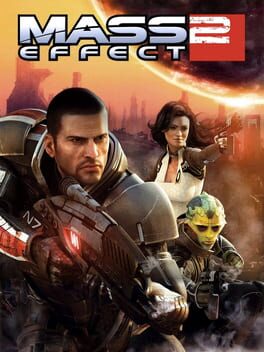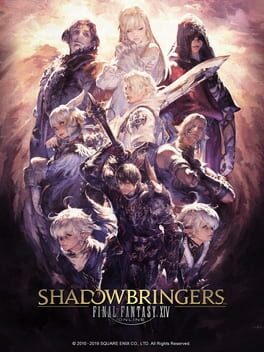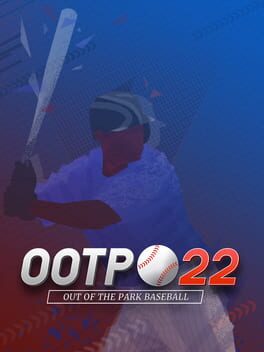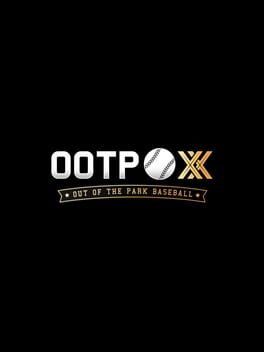RookTakesPawn
Bio
Nothing here!
Badges

Liked
Gained 10+ total review likes

Elite Gamer
Played 500+ games

Gamer
Played 250+ games

N00b
Played 100+ games
Favorite Games
945
Total Games Played
000
Played in 2024
423
Games Backloggd
Recently Reviewed See More
While the original Final Fantasy VII focused on themes of grief and permanent loss, both personal and environmental, physical and mental, Rebirth continues the themes prevalent within Remake. Remake took a classic, modernized it, and then told the audience to embrace the freedom of an untold story with your favorite characters. Driven by themes of the present defining who you are no matter age or social status, and believing that the future ("Fate") can be changed, Remake was bold and brash - even using its name as a playful smirk towards player expectations. And while I had come to terms with the Remake series' failure to follow in the narrative footsteps of its progenitor - and how that undermines a lot of the world building with the lifestream and the calamity that faced the world in the OG - the resulting narrative attempted in Rebirth surprised me in how it didn't deviate from the original.
Ideally, Rebirth would have embraced the freedom Remake granted it. The story it began to tell during the Rebirth Junon parade was tantalizing. But, instead, Rebirth went back to explore the original's same stories of regret and grief ever prevalent with Barrett, Tifa, Aerith, Red XIII, Yuffie, and even slight hints with Cid and Vincent. On their own, these stories are good; in a game about letting go and embracing that we have one world to live in so make the most of it, it works fantastic; with a narrative where death is just a trip down the rabbit hole? It grates. It grinds. Why can we change fate now and not back then? For this character but not that character? Like at the end of Remake, we are left to ponder still if the script and story still to be told will make this journey all worth it.
It doesn't help that these story-heavy sections are broken up by huge open-world-heavy sections. Characters are built up with dramatic tension and importance only to disappear for 30-50 hours; other characters appear randomly and seemingly just to fulfill the purpose of a "boss" without any development or finality. Incredible character moments are locked behind side quests and mini-games. There are no fully realized character arcs, conclusions, or clarity of purpose reached (except for Barrett); everything here is in flux and designed to move characters from Remake to the eventual third and final chapter.
And yet, I can't help but love these main characters, their motivations, banter, musical leitmotifs, and friendship. The genre-best gameplay. The superb soundtrack (until Gongaga, at least). The small moments that make the game feel grounded despite the fantasy of it all (I cried during a side story about salt, damnit). Even the mini-games brought back that 1997 feeling of picking up a random game from the video store, full of rough edges and sometimes surprising difficulty or depth.
As I finished this game and realized that a seemingly major component of the game required me to level grind in New Game+, I feel like I should hate how much time was just taken from me, how the story feels unsatisfying vague, and how the world/universe feels devoid of rules or meaning. And yet, I just keep thinking - what if? There is so much that is good in Rebirth, so much that is fun, to ponder, and to challenge how we might fight against the mega-corps, the greedy, the individuals who abuse power, science, and people. What if the third game delivers on the promise of these first two games? I suppose I'll just have to believe in the chance that this series will never let me go.
Ideally, Rebirth would have embraced the freedom Remake granted it. The story it began to tell during the Rebirth Junon parade was tantalizing. But, instead, Rebirth went back to explore the original's same stories of regret and grief ever prevalent with Barrett, Tifa, Aerith, Red XIII, Yuffie, and even slight hints with Cid and Vincent. On their own, these stories are good; in a game about letting go and embracing that we have one world to live in so make the most of it, it works fantastic; with a narrative where death is just a trip down the rabbit hole? It grates. It grinds. Why can we change fate now and not back then? For this character but not that character? Like at the end of Remake, we are left to ponder still if the script and story still to be told will make this journey all worth it.
It doesn't help that these story-heavy sections are broken up by huge open-world-heavy sections. Characters are built up with dramatic tension and importance only to disappear for 30-50 hours; other characters appear randomly and seemingly just to fulfill the purpose of a "boss" without any development or finality. Incredible character moments are locked behind side quests and mini-games. There are no fully realized character arcs, conclusions, or clarity of purpose reached (except for Barrett); everything here is in flux and designed to move characters from Remake to the eventual third and final chapter.
And yet, I can't help but love these main characters, their motivations, banter, musical leitmotifs, and friendship. The genre-best gameplay. The superb soundtrack (until Gongaga, at least). The small moments that make the game feel grounded despite the fantasy of it all (I cried during a side story about salt, damnit). Even the mini-games brought back that 1997 feeling of picking up a random game from the video store, full of rough edges and sometimes surprising difficulty or depth.
As I finished this game and realized that a seemingly major component of the game required me to level grind in New Game+, I feel like I should hate how much time was just taken from me, how the story feels unsatisfying vague, and how the world/universe feels devoid of rules or meaning. And yet, I just keep thinking - what if? There is so much that is good in Rebirth, so much that is fun, to ponder, and to challenge how we might fight against the mega-corps, the greedy, the individuals who abuse power, science, and people. What if the third game delivers on the promise of these first two games? I suppose I'll just have to believe in the chance that this series will never let me go.
20 is probably the pinnacle of OOTP during its 32-bit era. 21 made some improvements but really needed the jump to 64-bit. Additionally, 20 had much improved historical simulations and player attributes. It felt like the culmination of the various changes and improvements made since the game had obtained MLB, MiLB, and MLBPA licensing.







